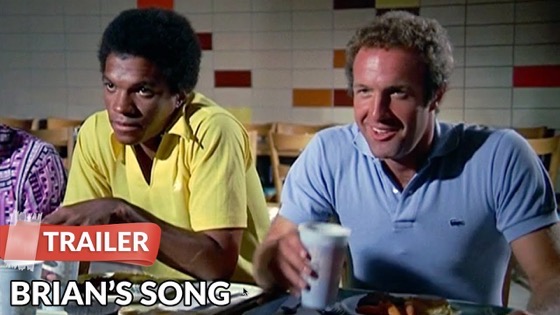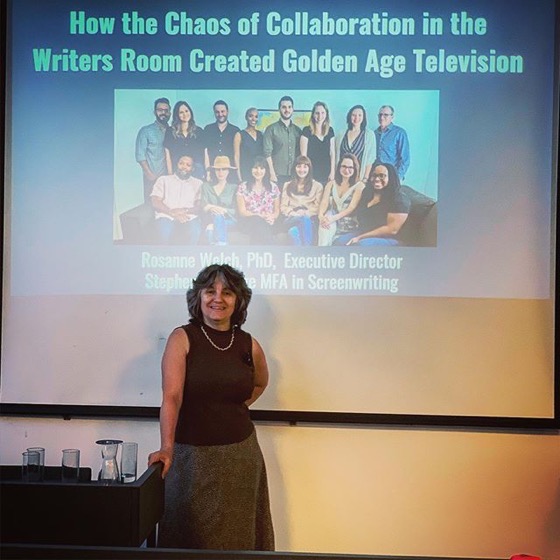Sometimes I love the way the internet lets you drill down layer after layer of research when you only had one small question – but you learn things you forgot you wanted to know. When I saw a question on Quora’s Ask a Screenwriter forum about the best “Based on a True Story” films the one that came immediately to mind was Brian’s Song so first I found the trailer:
Naturally then, I wanted to know who wrote it, which brought me to the film’s Wikipedia page, which brought me to William Blinn’s Wikipedia page
There I came to find that not only did he win an Emmy for writing that TV film but also one for writing on the original Roots. Here he receives the Paddy Chayefsky Laurel Award for Television for “a WGA guild member who has advanced the literature of television and made outstanding contributions to the profession of the television writer.”
His advice to young writers is to “get off you’re a** and do the work” and to “Tell the truth in an interesting way.”
(If you listen to nothing else in this blog post – listen to that speech!).
Blinn was nominated 3 times for episodes of Fame. And he won Humanitas and Peabody Awards along the way. Blinn also produced Starsky and Hutch (both the TV show and the 2004 movie!). Finally, he co-wrote Purple Rain…
THAT is a career – and you probably have never heard of him.
Finally, I came to remember how much I had resisted watching “a football movie” but I kept hearing how much other people loved it so when it re-ran on the 11:30pm film one night I snuck out of bed in the childhood home I shared with my grandparents and watched the film – finding myself sobbing as it ended. I had never seen a film about such a strong male friendship – and I have rarely seen on as strong since.
Yay for the internet – and Yay for William Blinn.

![07 It’s Show Business…Not Show Art…from Worry and Wonder | The Courier Thirteen Podcast | Episode # 29 [Video]](https://rosannewelch.com/wp-content/uploads/2021/07/rmw-courier-13-07.jpg)
![20 A-Not-So Safe Space on Friends from How The Chaos Of Collaboration in the Writers Room Created Golden Age Television [Video]](https://rosannewelch.com/wp-content/uploads/2021/07/srn-porto-20.jpg)


![06 How To Pitch To A Showrunner…from Worry and Wonder | The Courier Thirteen Podcast | Episode # 29 [Video]](https://rosannewelch.com/wp-content/uploads/2021/07/rmw-courier-13-06.jpg)
![19 Make It A Safe Space from How The Chaos Of Collaboration in the Writers Room Created Golden Age Television [Video]](https://rosannewelch.com/wp-content/uploads/2021/07/srn-porto-19.jpg)

![05 Working The Room…from Worry and Wonder | The Courier Thirteen Podcast | Episode # 29 [Video]](https://rosannewelch.com/wp-content/uploads/2021/07/rmw-courier-13-05.jpg)
![18 Fresh Off The Boat from How The Chaos Of Collaboration in the Writers Room Created Golden Age Television [Video]](https://rosannewelch.com/wp-content/uploads/2021/06/srn-porto-18.jpg)
![04 What The Show Is from Worry and Wonder | The Courier Thirteen Podcast | Episode # 29 [Video]](https://rosannewelch.com/wp-content/uploads/2021/06/rmw-courier-13-04.jpg)
![17 Representation from How The Chaos Of Collaboration in the Writers Room Created Golden Age Television [Video]](https://rosannewelch.com/wp-content/uploads/2021/06/srn-porto-17.jpg)